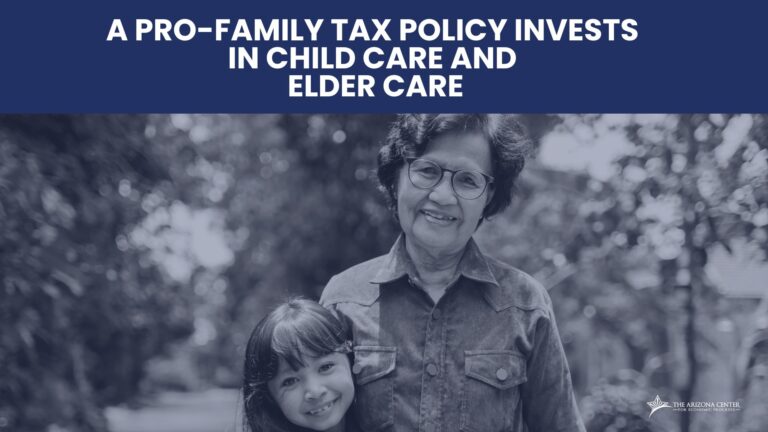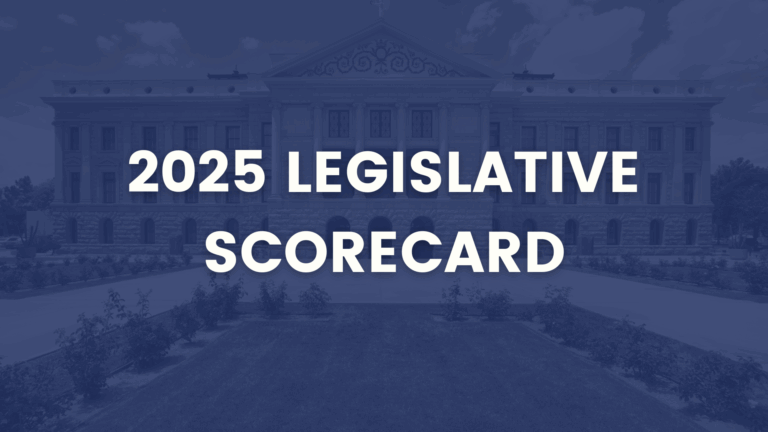
Bill to Increase Charitable Deductions Comes with Tradeoffs
The federal tax changes passed by Congress in 2017 preserved the charitable deduction for those who itemize their taxes. However, because the tax changes doubled the standard deduction, fewer people are expected to itemize and, as a result, some studies are predicting that charitable giving will decrease because there is no longer a financial incentive to donate for many taxpayers.
Arizona’s tax code already has among the most generous tax incentives for charitable giving of any state in the nation, including two separate tax credits for individuals who make contributions to charitable organizations plus a number of other tax credits for charitable causes. Now the legislature is considering a bill (HB2359) which would allow taxpayers to deduct charitable contributions without itemizing deductions on their state tax return. It is estimated that HB2359 will reduce state revenues by $30 million annually, which means less revenue to invest in the priorities shared by many Arizona charities for strengthening families, like child care, P-20 public education, health coverage, and services for people with disabilities.
Arizona currently provides two separate tax credits for individuals who make contributions to charitable organizations: one for donations to qualifying charitable organizations that provide services to low income residents of Arizona, and one for organizations that provide basic needs to individuals in the foster care system. Combined these two tax credits have grown by more than 700 percent over the last decade.
In addition to the two tax credits for charitable organizations, Arizona also offers tax credits for private school tuition organizations; a public school tax credit; a tax credit for donations of school sites; and a tax credit for donations to the military family relief fund. Charitable nonprofit organizations in Arizona which serve low-income populations are already benefitting from the growing use of the charitable tax credits. Reducing state tax collections further by creating a new deduction for charitable contributions will hurt many of the populations these charitable organizations serve because it will reduce the resources to invest in P-20 public education, child care, affordable housing, health coverage and services for people with disabilities.
|
Questions and Answers on HB2359 |
|
|
In order for a taxpayer to deduct charitable contributions on their Arizona taxes do the contributions have to be to charities operating in Arizona? |
No, contribution made to a nonprofit organization in California, New York, Alabama or any other state (even if they have no activities in Arizona) can be used to reduce taxes owed in Arizona. |
|
Do the charitable contributions have to be to organizations which serve low-income people? |
No, contributions to nonprofit organizations with all types of missions can be used to reduce tax liability in Arizona, including contributions to the Arizona Center for Economic Progress, Nextgen America, the Center for Arizona Policy , the Goldwater Institute, and the National Gardening Association. |
|
Could the cost of this legislation be more than $30 million annually? |
Yes, HB2359 has the potential to reduce state revenues more than what is currently anticipated. The report conducted by the Joint Legislative Budget Committee acknowledged that estimating the $30 million annual fiscal impact on this bill is “uncertain” and “speculative.” That is not surprising given that HB2359 places no cap on the amount of charitable contributions which can be deducted. |
|
Are there other states which have similar laws allowing taxpayers to deduct charitable contributions without itemizing deductions on their state tax returns? |
Just two other states have similar tax codes – Colorado and Minnesota – however, unlike what Arizona is proposing, those states place a cap on the amount of contributions which can be deducted. Arizona’s HB2359 places no limit on the amount of contributions which can be deducted. |
|
If the fiscal impact of this grows much higher than the estimated $30 million annually, could a future legislature simply repeal the law or put a cap on the amount of charitable contributions which can be deducted? |
While it only takes a simple majority vote of the legislature to enact HB2359, once the law is enacted the Arizona Constitution would require a two-thirds vote of the legislature to place a cap on the amount of deductions which can be claimed or to repeal the charitable deductions law. |



